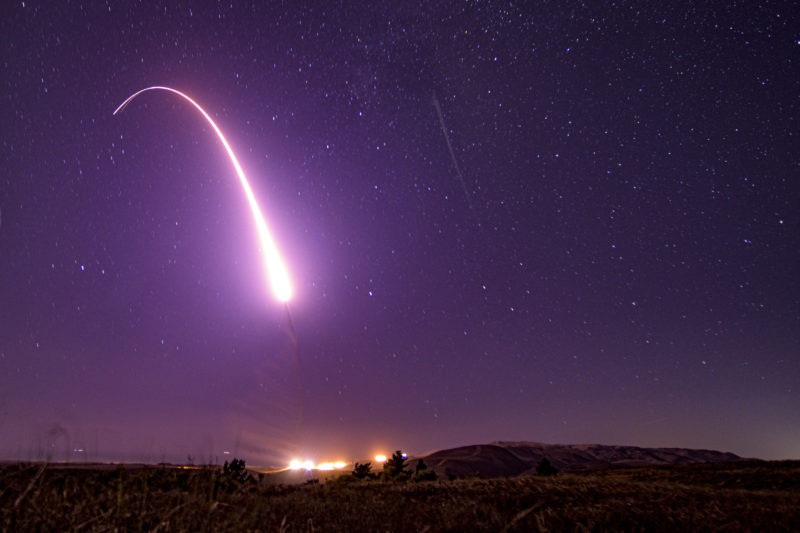US tests ballistic missile over Pacific
A test launch of an unarmed Minuteman III intercontinental ballistic missile from Vandenberg Air Force Base in California on October 2 — a short-range missile was tested on Thursday from the base (J.T.ARMSTRONG)
<p>Washington (AFP) – The United States tested a medium-range ballistic missile on Thursday, the second test in four months of an offensive missile that would have been banned by a US-Russia arms treaty that Washington exited in August.</p><p>The Air Force launched the conventionally configured missile from Vandenberg Air Force Base northwest of Los Angeles at about 8:30 am local time (1630 GMT), according to a base spokesperson.</p><p>The prototype ground-launched missile flew more than 500 kilometers (300 miles) before plunging into the Pacific Ocean, the Pentagon said.</p><p>"Data collected and lessons learned from this test will inform the Department of Defense’s development of future intermediate-range capabilities," said Pentagon spokesman Lieutenant Colonel Robert Carver.</p><p>Thursday’s test was the second of a ground-launched, medium-range nuclear-capable missile since Washington exited the 1987 Intermediate-Range Nuclear Forces Treaty with Moscow.</p><p>The INF would have forbidden testing of the missile, as well as a cruise missile tested in August.</p><p>Unrelated to the INF, on October 2, the Air Force launched an unarmed Minuteman 3 intercontinental ballistic missile from Vandenberg, delivering a test reentry vehicle to the Kwajalein Atoll 4,200 miles away in the western Pacific.</p><p>The tests could also be a signal to North Korea, which has demonstrated its own cross-Pacific nuclear threat with multiple successful short, medium and long-range ballistic missile tests.</p><p>Rejecting UN-backed sanctions, Pyongyang recently hinted that it may undertake another test as a "Christmas gift" if the US does not come up with concessions in bilateral relations by the end of the year.</p><p>On Wednesday, the US ambassador to the United Nations, Kelly Craft, warned Pyongyang of consequences if it follows through with a major weapons test in the new year.</p><p>"Missile and nuclear testing will not bring the DPRK greater security," Craft said, referring to the North by its official name, the Democratic People’s Republic of Korea.</p><p>"We trust that the DPRK will turn away from further hostility and threats, and instead make a bold decision to engage with us," she said.</p><p></p>
Disclaimer: Validity of the above story is for 7 Days from original date of publishing. Source: AFP.


